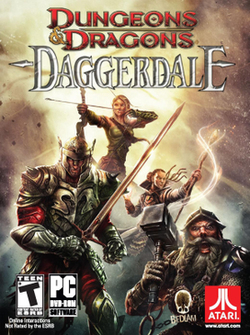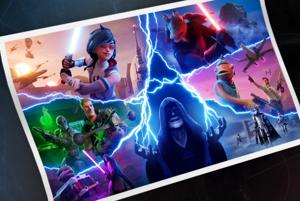

Dungeons & Dragons: Daggerdale is what happens when you take the beloved tabletop fantasy and try to dose it with a healthy splash of mediocrity. Developed by Bedlam Games, this action RPG plunges players into the Forgotten Realms with all the grandeur and grace of a drunken ogre attempting a ballet. It features both single-player and multiplayer modes, which sadly can't disguise its issues. Prepare your dice, folks-this ride is going to be bumpy!
Daggerdale serves up real-time tactical combat, which allows players to experience the thrill of chopping enemies while simultaneously wondering why their character was crammed into such a bland gameplay loop. You can pick from four main character classes-fighters, wizards, clerics, and rogues-each with their own quirks and overused archetypes. Want to swing your sword and scream 'I am the hero of Daggerdale!'? You can do that. As you slay foes, experience points drip into your character like honey onto a pancake, albeit much less appetizingly. You're limited to leveling up to 10, which feels like a straightjacket rather than a universal limit. So, in short: if you like cookie-cutter RPG mechanics and enemies that die like they're auditioning for a one-man play about being defeated, then welcome on board! The campaign mode lets you tackle missions solo or band together with friends via split-screen, which sounds great in theory until you realize that cooperation is akin to trying to push a boulder uphill: frustrating and likely to lead to some regrettable arguments. Combat feels satisfying at first, but quickly resolves to repetitive swings and spells that are eye-popping in the same way as a cardboard cut-out of a dragon would be: confusing and underwhelming. The quests are as basic as they come, generally involving the staple mixture of kill-this-monster and retrieve-that-item, which could work for a more simplistic affair, but here amounts to an uninspired effort worthy more of a Dungeons & Dragons 101 class than a capstone game release in the series. Customization options are meager, as characters earn abilities like feats and level-appropriate gear, but dressing your pixelated hero in a less dull outfit isn't enough to keep the party vibes going.
Ah yes, the graphics. Daggerdale is powered by Unreal Engine 3, which in many ways feels like calling a semi-retired car out of the garage and insisting it's still good for a cross-country road trip. The environments are more drab than you'd expect, with more brown and gray hues than a moody artist's palette. The character models tell a similar tale; their designs scream 'generic' louder than an overzealous NPC trying to sell you the same potion for the hundredth time. The constant screen tearing and pop-in issues are annoying enough to spoil your immersion-not that there's much to immerse yourself in, given the plain, repetitive designs that feel like they were pulled straight from a budget cardboard box.
In the grand arena of role-playing games, Dungeons & Dragons: Daggerdale makes a grand exit stage left, tripping over its own feet and possibly pulling a uninterested sidekick with it. A few solid ideas hidden beneath the surface-like cooperative play and the rich lore of D&D-are unfortunately suffocated by dull gameplay, tiresome quests, and graphics that feel like a trip down memory lane to a time when 3D was merely a gimmick. So, unless you're an incredibly forgiving fan of the franchise looking for a nostalgic trip against the backdrop of a forgotten soundtrack, you might want to pass on this adventure. After all, there are much more flavorful pixels to feed on from the extensive buffet of the gaming world. Save your gold coins for something less crescent of catastrophe and more resplendent in its execution!






